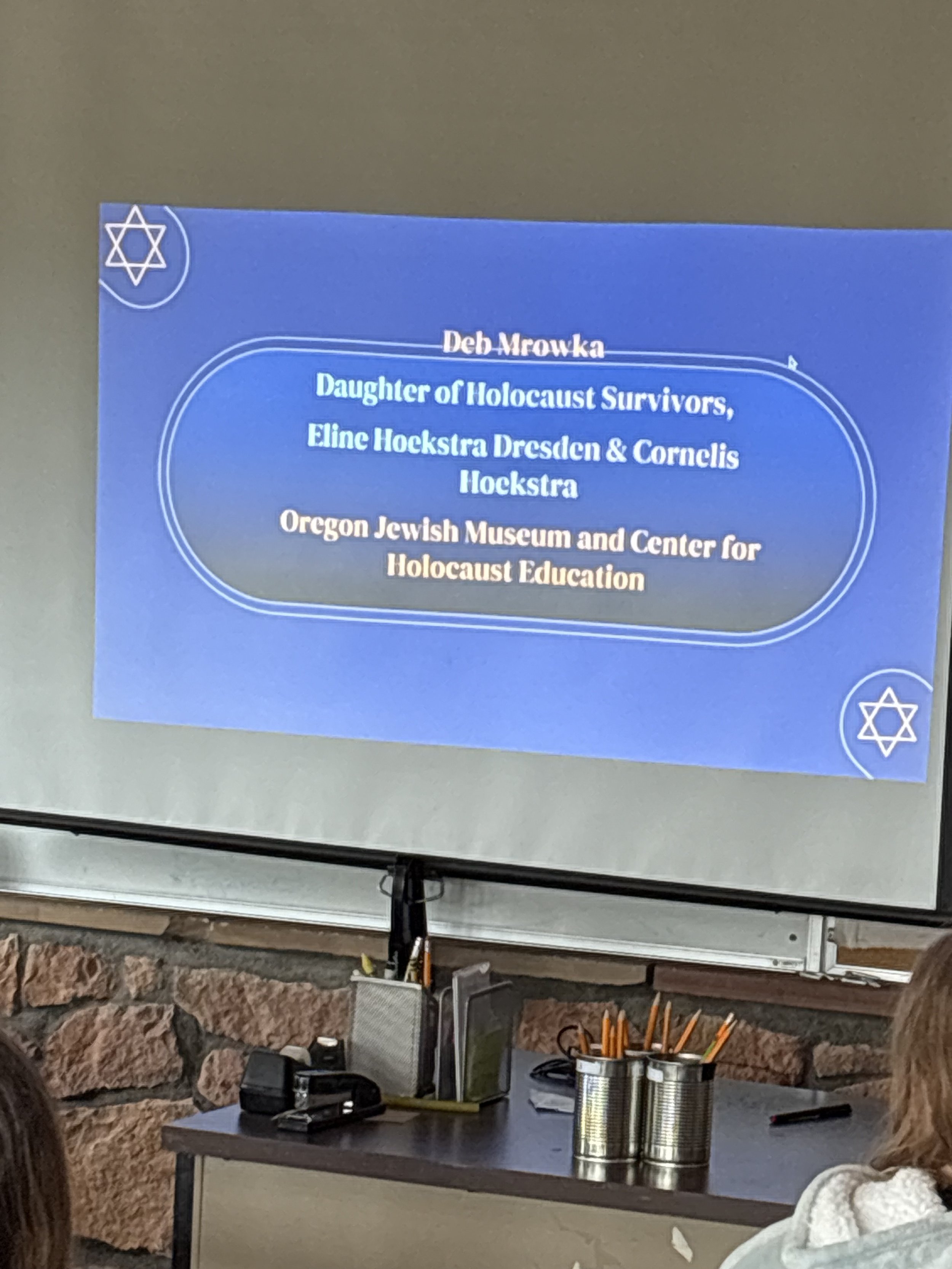Understanding History, Honoring Memory: Our Expanded Study of Jewish Experiences in Europe
History is best understood when we explore real people's stories, choices, and experiences. This year, our middle school students’ (the Herons) study of medieval Europe expanded to include the experiences of Jewish communities across the continent, tracing their diaspora from 70 CE onward. This broader historical perspective laid the foundation for a deeper examination of the Holocaust, not just as an isolated event but as part of a long and complex history of persecution, resilience, and survival.
Partnering with the United States Holocaust Memorial Museum, the Herons explored critical insights into the Holocaust, challenging the idea that such an atrocity was inevitable. Instead, they examined how individual, group, and national decisions shaped history, reinforcing human agency in preventing or enabling systemic violence.
Through this lens, students engaged in critical thinking, analyzing historical sources to consider biases, motives, and gaps in information. They also watched important films such as European Antisemitism from its Origins to the Holocaust and The Path to Nazi Genocide to deepen their understanding of how discrimination and propaganda escalated into mass violence.
One of the most impactful moments of the study was a visit from Deb Mrowka, who shared the story of her mother, Deb Eline Hoekstra Dresden, a Holocaust survivor. Her firsthand account, filled with memories of loss, resilience, and hope, resonated deeply with students. Deb’s words reminded us that history is not just about dates and events—it’s about people.
She also shared personal heirlooms from her mother's time in the concentration camps, making history tangible and deeply personal. As a final gift to our community, Deb donated a signed copy of her mother’s book, Wishing Upon a Star: A Tale of Holocaust and Hope, a moving testament to survival and memory.
Through this expanded study, our students developed a deeper awareness of the complexities of history and its relevance today. By examining antisemitism in the past and present, we empower our students to recognize injustice, challenge harmful narratives, and appreciate the profound importance of compassion, critical thinking, and standing up for what is right.
As we continue these conversations, we invite our community to explore the resources we used, reflect on these lessons, and ensure that history guides us to a more just and empathetic future.
If you would like to learn more about Deb’s story, visit the Oregon Jewish Museum and Center for Holocaust Education (OJMCHE) to explore her family's legacy.




